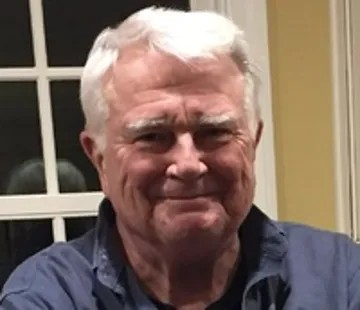When Jim Marshall died within hours of beginning hospice care on October 16, none of us here at Iowa had any idea he’d been sick or that his cancer had spread over several weeks. Only his family knew. I write this because it’s an apt metaphor for Jim’s life and his personal and professional relationships. He was a remarkable man, and we all knew that in different ways. His spirit, his humor, his intelligence, his work ethic, his joy in every person he knew and every book he read was always most important.
Jim convinced me to come to Iowa City in 1991. I had met him at a conference in which we were both interested in one another’s work. My East Coast persona was unfamiliar with Iowa, worried about the landscape, and I was hesitant. But one of my mentors had said “There’s a job at Iowa and your name is written all over it! Find Jim Marshall.”

I knew Iowa’s reputation for the teaching of English and Education: the first book on the idea of Writing across the Curriculum, the names John Gerber and Richard Lloyd-Jones, who were trail blazers in the National Council of Teachers of English, and of course the writing activity just beginning here at the time. “You’ll find Iowa City to be very cosmopolitan,” said Jim. We talked about the remarkable fluidity between English and Education, two fields I’d already committed myself to teaching and writing. Jim had a joint appointment and so did another colleague. I was struck by that, knowing how unusual it was. And so I applied.
Within hours of my visit, Iowa City felt like home. Jim became an intellectual brother to me.
English education was already well known in our own professional circles, and Jim’s work strengthened that as the years went by. He became a highly important author and rigorous researcher. He chaired the Gen Ed program in English. He became the Associate Dean in the College of Education. He was a cherished and valuable colleague, not just to our two departments, but to Iowa English teachers in secondary schools all over the state of Iowa. His smart work and personal commitment offered students, teachers, and administrators such strong links that, even as our state had turned from blue to red, we are still seeing the results within a large radius of Iowa City and beyond. His clever presentations, his colloquia for teachers, his enthusiasm for students was sturdy and always, always eloquent.
With gratitude, love, and sadness
Bonnie S. Sunstein, Professor of English and Education